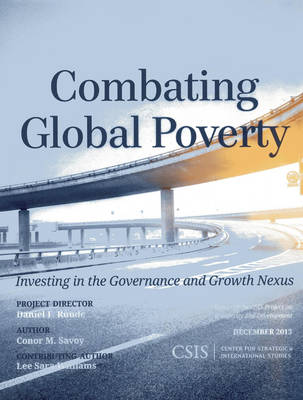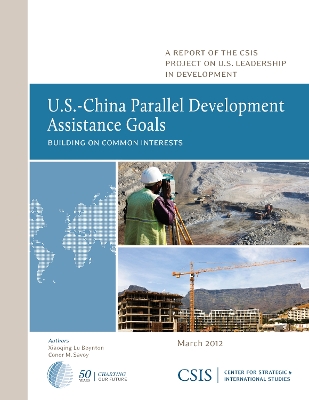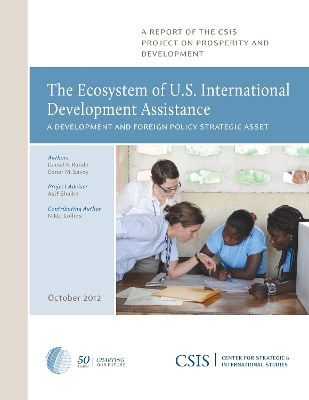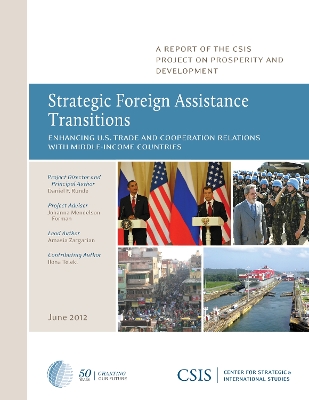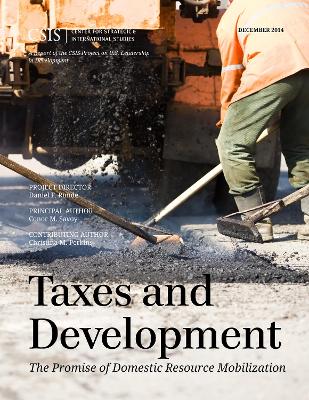CSIS Reports
6 total works
Although funding for governance and economic growth is a part of U.S. foreign aid, it remains a relatively low priority in spite of rhetorical pronouncements to the contrary. There is significant reason, however, to reverse this trend and return to a focus on governance to ensure broad-based economic growth across the developing world. In particular, the rise of emerging economies that can increasingly contribute to their own development means the United States could reduce its focus on basic human needs and toward the growth and governance nexus. This will require a shift in how the United States programs its people, time, and money in delivering foreign assistance.
U.S.-China Parallel Development Assistance Goals
by Xiaoqing Lu Boynton and Conor M. Savoy
Published 30 May 2012
A key challenge in twenty-first-century geopolitics is finding ways for China and the United States to cooperate internationally and avoid conflict. Finding areas of common development interests and building trust will be difficult, but not impossible. International development as a source of cooperation may not be a priority for Beijing and Washington, but it does represent an area that requires a low level of investment and could yield beneficial gains for both countries.
The Ecosystem of U.S. International Development Assistance
by Daniel F. Runde and Conor M. Savoy
Published 23 December 2012
The CSIS Project on Prosperity and Development convened a working group of development implementers, former and current policymakers, and other practitioners to discuss the evolving role of U.S. development under the new USAID Forward agenda and how to achieve aid effectiveness. The working group met three times to discuss local capacity building; results, accountability, and transparency; and development effectiveness. These meetings, combined with extensive interviews, led to the conclusion that the current U.S. ecosystem of international development assistance should be treated as a strategic asset that plays an important role in meeting U.S. national security and foreign policy objectives. This system, while imperfect, delivers a level of accountability and transparency for the U.S. government that is vital to continued political support for foreign assistance. Significant risks are associated with USAID's proposed reforms, which, if fully implemented, may not achieve the results desired. This report's recommendations are designed to help development implementers do more to meet the changing nature of how the U.S. government sees development and the broader trends in the field.
Strategic Foreign Assistance Transitions
by Daniel F. Runde and Amasia Zargarian
Published 26 August 2012
Justifying traditional U.S. assistance to middle-income countries is an increasingly difficult proposition, and refocusing limited U.S. government development resources away from middle-income countries offers an efficient way to identify savings in the foreign assistance budget. This is not the first time that the U.S. government has faced such questions, and it can draw upon past transitions-not all successful-for a variety of valuable lessons for repurposing the United States' relationship with middle-income countries. This report begins with a brief introductory chapter on the main issues and themes. Chapter 2 considers the experiences of South Korea, Lithuania, Costa Rica, Portugal, and Tunisia as case studies of countries with relatively successful U.S. assistance transitions. Chapter 3 examines Brazil, India, Russia, and Panama, four middle-income countries with which the United States can shift its assistance relationship toward a focus on bilateral trade and cooperation interests. Chapter 4 offers nine specific recommendations for shifting the United States' relationships with middle-income countries from assistance to true partnerships. Chapter 5 concludes.
Opportunities in Strengthening Trade Assistance
by Scott Miller and Daniel F. Runde
Published 1 January 2015
While free trade agreements and other intermediary trade agreements allow emerging nations increased access to markets, many low- and middle-income countries lack the capacity required to meet global standards. Deficiencies in quality of product, speed of transport, or quality of regulation can prevent countries from reaping the benefits of trade agreements, particularly with the United States. This report of the CSIS Congressional Task Force on Trade Capacity Building-cochaired by Representatives Charles Boustany (R-LA) and Jared Polis (D-CO)-focuses on how projects to build trade capacity can be planned and coordinated to maximize the benefits of new trade agreements, both for the United States and its partners.
There is real promise for developing economies in the mobilization of their own domestic resources. For example, in 2010, tax revenue on the Africa continent was eight times larger than the foreign assistance received. And as aid levels from wealthy nations continue to be uncertain, countries have an impetus to finance their own development in order to deliver responsible, transparent public services-all of which require a strong tax base from the formal sector. The Global Partnership for Effective Development Co-operation, launched in 2011 at Busan, relies heavily on this principle of domestic resource mobilization as a means of country ownership. How we leverage the expertise of donor governments in partnership with local governments in implementing this agenda is key to its success.
